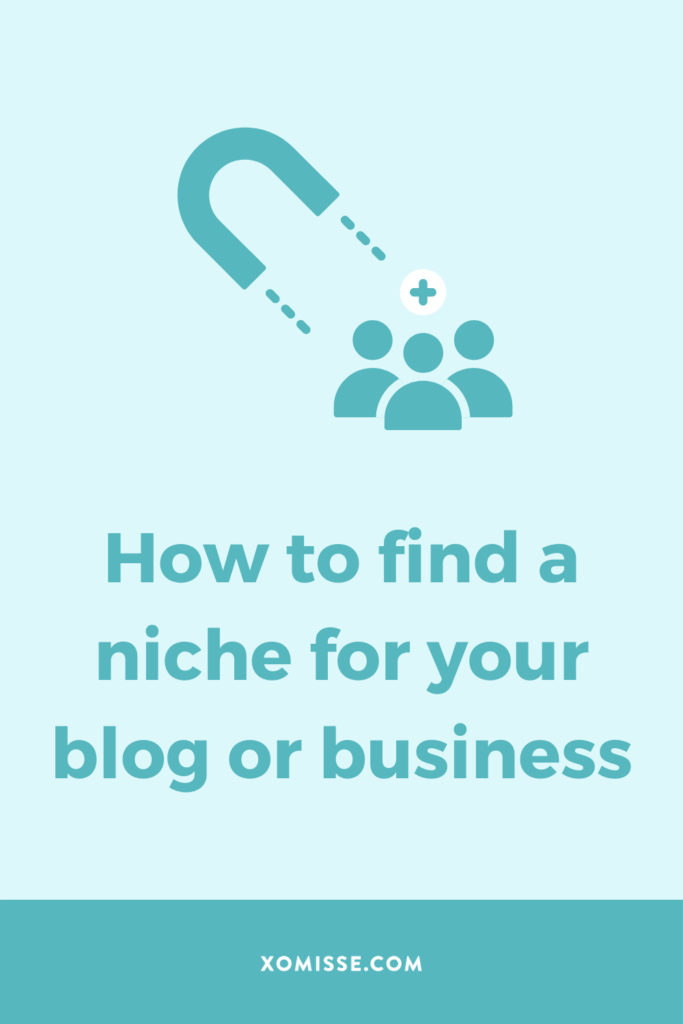When you get started with having a blog, one of the things you’ll notice that comes up again and again is around having a niche.
A blog niche is a specific topic you create content about on your blog. When you decide on your niche, you need a clear understanding of who your ideal audience is.
This post will help you determine whether or not you need a niche and guide you through the steps of figuring out what you specialise in.

Non-niche vs. niche blogs
You can usually divide blogs into two categories: lifestyle/non-niche blogs and niche blogs.
What is non-niche?
Non-niche bloggers typically “write about everything”. Their “niche” lies in their personality, their opinion and their ideal audience.
If you look at The Everygirl you’ll see that they don’t really have a specific thing that they talk about, they cover fashion, sex and relationships, weddings and finance. But if you look at their manifesto, you’ll see they do have a particular reader in mind.
Non-niche bloggers are sometimes referred to as being in the lifestyle niche, where a blogger covers a couple of topics that link together in one way or another and connect with a specific audience.
What is niche?
Niche blogs however tend to “write about one thing”. They target a particular genre, topic or location and really hone in on their audience.
They may not reach as much of an audience, but who they do reach will be their ideal people.
Sophie etc. is a great example of a niche blogger, she focuses on food and travel in Milton Keynes. The reason this is so powerful is because it sets her apart from other food and travel bloggers. When somebody mentions Milton Keynes, I automatically think of Sophie and recommend her blog.
Why I think you should consider a niche blog
You can definitely build an audience and be successfull as a non-niche blogger. But as I mentioned above I think you’re at a bigger advantage with a niche.
Here’s why:
- Having a niche gives you focus when it comes to the topics you cover
- It allows you to fine-tune your SEO and target specific keywords
- It lets you research specific keywords for content ideas that will bring you traffic
- It makes it easier to monetise your content because you know exactly what your audience wants and needs
- It gives you a reliable audience of people who are interested in your topic
- It helps you to build authority as an expert on that topic
- It helps you establish your credibility and demonstrate your knowledge
Let’s say you decide to start a fashion blog. Fashion is a really broad niche and has been a popular choice for many years. It may be difficult to establish yourself from the millions of other fashion bloggers out there already.
To give you an idea of numbers, according to Statista, the number of active bloggers in the United States is set to reach 31.7 million users in 2020.
So intead of starting a fashion blog, you may find it easier to differentiate if you focus on say sustainable fashion. While this is a smaller niche, it’s one that will give you a core audience of people who are really interested in that topic.
Finding a niche for your blog for business
Write down a list of things you’re interested in. Brainstorm all of the possibilities and write everything down, don’t worry about what will or won’t work right now.
Now look through the list will the following questions in mind:
- How passionate are you about the topic – is it something you LOVE to talk about and could create hundreds of posts or videos about?
- Are other people interested in the topic? You could use Google Trends to see if people are searching for the topic and how popular it is
- Could you make money from the topic? Are other people within the topic monetising?
Once you have settled on your niche, ask yourself if you could even niche down even further. You can get as specific as you like! Maybe you started as a lifestyle blog and niched into a food/recipe blog. Is there a particular type of meal or genre you like talking about that is popular with your readers, like “budget recipes” or “organic food”?
Conclusion
People are typically for or against niching. There is always a debate on whether or not you can still be successful if you don’t have a niche blog. There are pros and cons to both, but in my experience the advantages of having a niche blog outweigh the disadvantages.
With that being said, I don’t think that you NEED to know your niche straight away, despite this being the advice from many experts. It can be difficult to choose a particular area getting started. Don’t be put off if you enjoy writing and want to start a blog, but aren’t really sure of what exact topic you want to cover yet.
If you have defined your niche, can you explain exactly what it is and who it’s for?